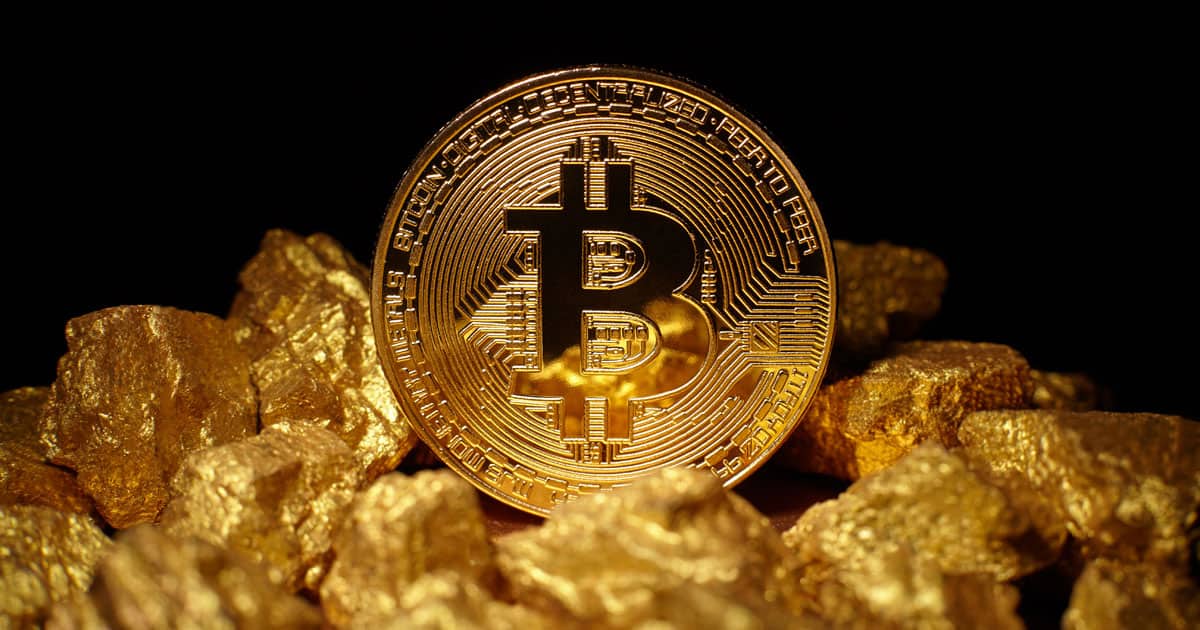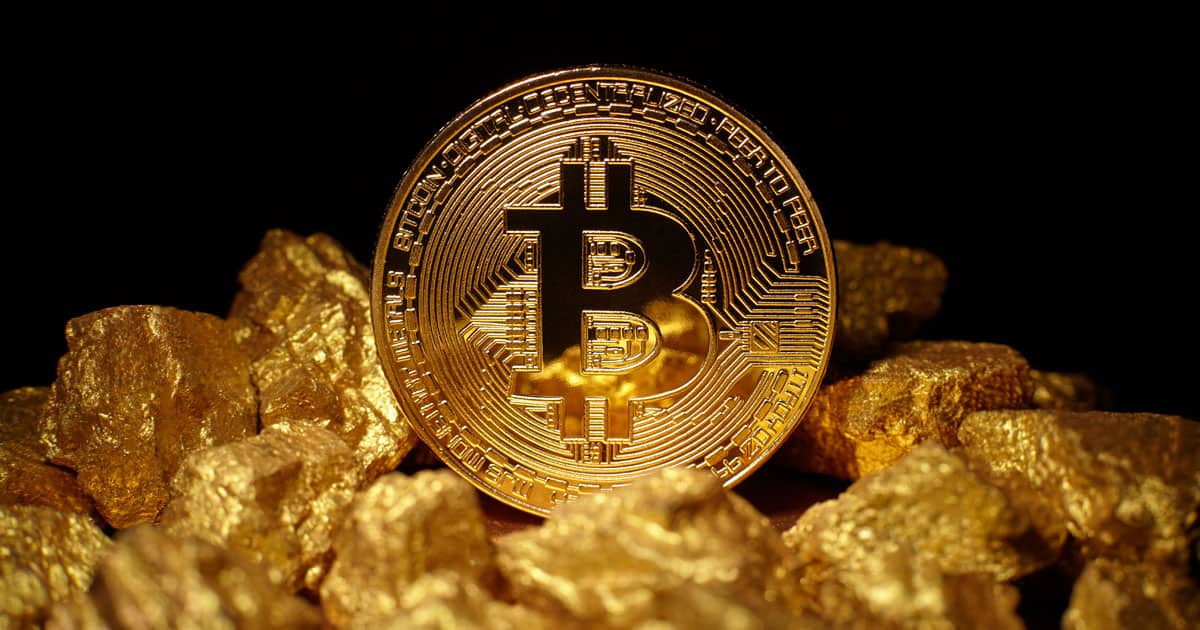Page 2 – Bitcoin Is a Commodity, Bitcoin Wallets, and Bitcoin Faucets
Bitcoin Is a Commodity
Another thing to know is there are a fixed number of Bitcoins available. Some are still available to be mined (a process of solving complex math equations), but some time in the year 2140 the last fraction of a Bitcoin will be mined, and no new ones will be created.
The fact that Bitcoin isn’t controlled by any one entity or government combined with the fact that no one can make any more of them makes it an attractive commodity for a lot of reasons. Combine that with the anonymity of transactions – not even the IRS knows if we sent you a Bitcoin for reading this (we didn’t) – and it gets even more attractive.

It also is perhaps the most efficient way to send money to someone overseas, and that’s attractive, too. If we converted dollars to Bitcoin and sent that to you, you could then take that Bitcoin and convert it into whatever your chosen currency is. Doesn’t matter who you are or where you live. And no one knows where that money came from (though, obviously, once you convert it into government-approved currency there will be records of that).
Bitcoin Wallets
Bitcoins are stored in digital wallets. There are various types of wallets, but they’re generally just a piece of software that connects to that network of computers we mentioned. Everyone knows about everyone else’s Bitcoins, but it’s mostly anonymous. Yes, we all can see every Bitcoin transaction on something called the Blockchain, but transactions only have account numbers attached—like Swiss bank accounts—not names.
A couple of points about this:
- Beware! If you lose access to your wallet, there’s no way of getting it back!
- There are sophisticated ways agencies like the NSA have employed to attach names to some Bitcoin addresses. Bitcoin is pseudonymous, not completely anonymous
You can download Bitcoin wallets from Bitcoin.org. These are software wallets you can run on your Mac or PC. There are also dedicated wallets for iOS and Android.
Web-based wallets are another option. There are significant tradeoffs in operating a web wallet because you’re putting your trust in a third party. We have personally used Blockchain.info‘s wallet, which we like because we own the keys. Of course, if we lose those keys, we lose access to our wallet, but that’s actually the point.
Another option is Coinbase, a hosted web wallet where you don’t control the keys. Coinbase’s main benefit is that it is also an exchange where you can buy and sell Bitcoin. Many people trade Bitcoin there, and then move it to a more secure wallet.
We’ve used both Blockchain.info and Coinbase and have been pleased with our experiences.
Bitcoin Faucets
Bryan has been running a Bitcoin faucet guide here at TMO for years. Bitcoin faucets give you a fraction of a Bitcoin in exchange for loading up a page full of ads. Bitcoin faucets won’t make you rich, but it’s a way of getting into Bitcoins without buying them, and a lot of them are even fun.
If you have additional questions, let us know in the comments below.

Three years have passed since this was originally posted. My opinion of cryptocurrency has not changed. I don’t go within a mile of it.
Dude, your post is crammed full of incorrect information. What is your background, or are you another armchair analyst? Do you understand Fintech or finance or tech enough to even comprehend what Bitcoin is? Because you’re obviously clueless about finance.
Allow me to educate you:
Bitcoin is now endorsed and held by the largest banks. NY Mellon just agreed to storehouse, and BoA, Citi, JP Morgan are following suit. Jamie Dimon of JP Morgan just apologized saying he hadn’t understand it well enough to see the value. He’s now a fan. Dimon is arguably one of the savviest financiers on Wall Street.
This is what most Fintech-savvy individuals have said about it. Sorry to burst your bubble, but you might consider studying Bitcoin before condemning it. Most enthusiasts believe BTC will reach 100K by the end of this year. It’s not unforeseeable.
In a year you’ll either be kicking yourself for not getting in on the greatest growth story ever ($.00003 in 2008 to $50K in 2021) That’s a 1666666666X multiple in 23 years. Or you’ll be correct and I’ll eat my words.
P.S. Any volatile instrument should be money managed (covered) and Dollar-cost averaged so you are ultimately playing with the house’s money.
Dude, your post is crammed full of incorrect information. What is your background, or are you another armchair analyst? Do you understand Fintech or finance or tech enough to even comprehend what Bitcoin is? Because you’re obviously clueless about finance.
Allow me to educate you:
Bitcoin is now endorsed and held by the largest banks. NY Mellon just agreed to storehouse, and BoA, Citi, JP Morgan are following suit. Jamie Dimon of JP Morgan just apologized saying he hadn’t understand it well enough to see the value. He’s now a fan. Dimon is arguably one of the savviest financiers on Wall Street.
This is what most Fintech-savvy individuals have said about it. Sorry to burst your bubble, but you might consider studying Bitcoin before condemning it. Most enthusiasts believe BTC will reach 100K by the end of this year. It’s not unforeseeable.
In a year you’ll either be kicking yourself for not getting in on the greatest growth story ever ($.00003 in 2008 to $50K in 2021) That’s a 1666666666X multiple in 23 years. Or you’ll be correct and I’ll eat my words.
P.S. Any volatile instrument should be money managed (covered) and Dollar-cost averaged so you are ultimately playing with the house’s money.
I really keep searching, and searching for one main question (which breaks into 2 or 3 smaller ones):
Things like coinbase seem like “middle men” that could go away or trap my funds. How can I truly own my bitcoins without danger of funds being frozen etc?
Another version of the above: what is the truly, best, safest, realest “middle man” if I do decide or need to go with one?
Perspective: I don’t trust companies just because they are well known. Coinbase shmoinbase. A few people in an office somewhere, and yes they could go away, could be compromised, attacked, whatever. I know today it would be rare to mine your own bitcoin, but suppose I did. I’d own it. Without needing Coinbase or other exchanges. I understand I might need to go through one to make a transaction. But this is the big question for me. The middle men. The reliability. A Google search reveals frozen funds and big fees trying to withdraw funds. On a mega-wide scale. I want to get into bitcoin, but need to overcome this.
People keep trying to call Bitcoin a currency. It is not. Currencies have a country, an economy, a Central Bank backing it up. Somebody is minding the store. Somebody cares what the value of the Pound or Dollar, or Euro, or Yen is. Bitcoin has NO ONE backing it up. Its value is set by whatever people are willing to pay for it.
People keep trying to say Bitcoin is like a commodity. It is not. When you buy a commodity, you have SOMETHING, gold, diamonds, iron, oil, wheat, some physical thing that can be sold again. You may make a profit, you may lose money, but you have a physical asset that is worth something. Bitcoin has NOTHING to back it up. It has no physical asset it represents. It’s value is literally whatever the market is willing to pay for NOTHING.
What IS Bitcoiun most like? The derivatives that were popular in the ’80s and ’90’s. The ones that set the value of a share on some mathematical formula based on some index. They had no one minding the store either. They in reality had nothing backing them up either. When the derivative bubble popped most who had invested in them lost everything. That is what I expect to happen to Bitcoin.
Bitcoin looks most like a classic textbook case of a speculative bubble. This kind of volatility, this kind of crazy bidding, people buying in regardless of the price is exactly what you get before a bubble pops. It’s what happened in the latter stages of the derivative bubble. It is exactly what happened in the latter stages of the Dot-Com bubble. It’s what the stock markets looked like just before the crash of ’29 and ’87. It is gonna blow, and like most bubbles, the people who got in early, who set it up and got out as the bubble inflated, make something. Everyone else loses their shirt.
What I tell people who have asked me about Bitcoin is this: It looks good but most get rich quick schemes do. It will collapse. Someone will cash out and and the buying frenzy will become a selling frenzy. Either that or there will be some international shock, a war, a run on some other market, a major company reporting a bad year that triggers a flight to quality. Bitcoin has none. Either way if you are left holding the bag when everyone sells you will have what you have now, nothing. I tell people if you aren’t in, don’t. If you are in, cash out before you lose everything. This won’t end will for most holders of Bitcoin.
Sorry to rain on your parade, I know you’ve been a fan of Bitcoins and cryptocurrancy since day one. But I never liked or trusted the concept of a cryptocurrency. It smells to much like a Ponzi scheme for me.
One small quible: Bitcoin is a commodity, but a virtual one. Maybe more like virtual tulip bulbs than virtual gold, but you get the idea. No usefulness IRL. And not really like a derivative either, which is a promise backed by some agent (though it could be very difficult to determine who that agent is) that might or might not be kept. With Bitcoin, there is no agent making a promise, just a hope of a bigger fool.
Exactly right. Fools bought an imaginary bag of nothing and are hoping someone else will pay them more for it